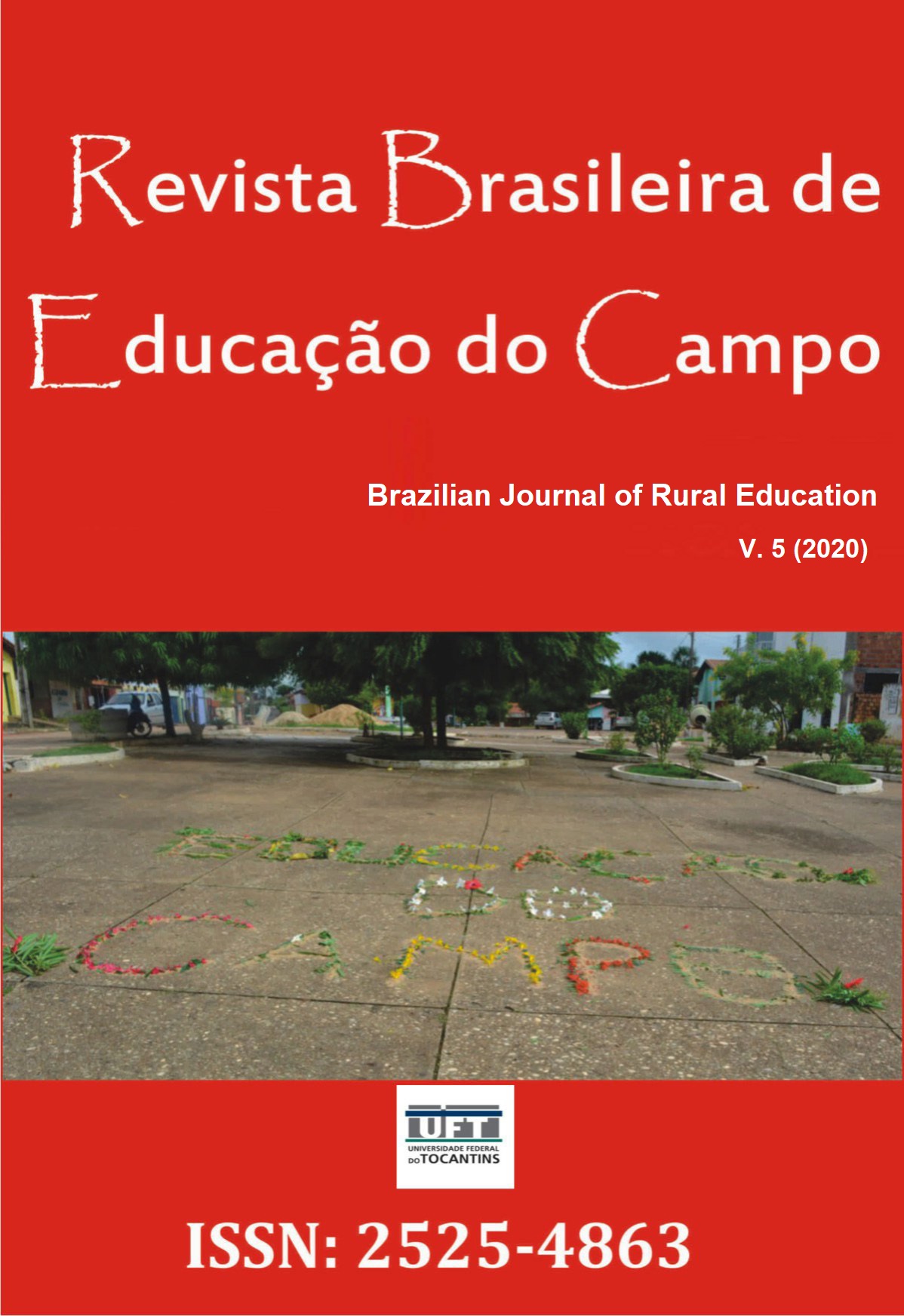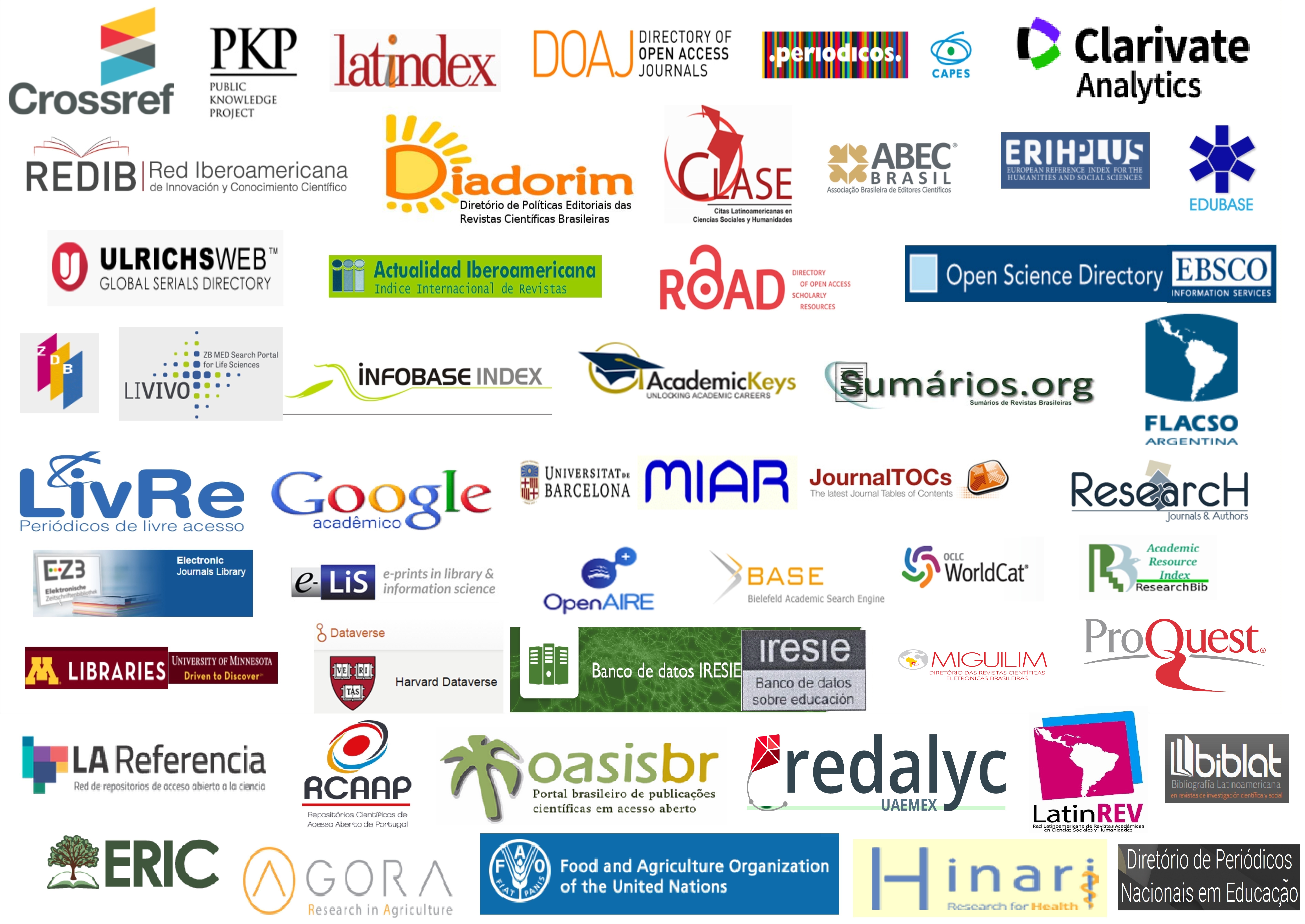A sociedade em Zygmunt Bauman, a escola e o direito educativo em tempos de liofilização do espaço público
DOI:
https://doi.org/10.20873/uft.rbec.e10681Resumo
O presente artigo tem por objetivo compreender as racionalidades da sociedade sólida e líquida caracterizadas por Zygmunt Bauman como metáforas da modernidade, relacionando-as com a escola e o conceito de direito educativo em tempos de liofilização do espaço público. O trabalho é bibliográfico e discute a caracterização da sociedade com vistas ao encolhimento do espaço público, problematiza este contexto com base nos conceitos da escola e do direito educativo. Nesse cenário, espaço e tempo são reconfigurados, anunciando outra racionalidade. A virtualidade de um mundo em rede possibilitou que o tempo se tornasse mecanismo na conquista do espaço. No que diz respeito à educação, na modernidade sólida, a formação dos indivíduos tinha como propósito uma educação para a vida toda, o que não se aplica mais, no entender de Bauman, na sociedade líquida. Assim como a função docente representava o conhecimento verdadeiro e inquestionável, ganha hoje conotação diferente, haja vista, que o poder das relações globalizadas democratizou o acesso às informações e ao conhecimento. A liquidez anuncia a centralidade do indivíduo num espaço público cada vez menor, no qual é necessário discutir sobre o direito educativo ou educacional, como sendo o conjunto de normas que preceitua e regula os ditames referentes à educação, inclusive sobre o direito à educação. Não há respostas conclusivas para o enfrentamento de tal proposição, mas refletir sobre esses desafios é um primeiro passo, visto que alargar a compreensão do tempo presente, a racionalidade que nele opera, é fundamental. E a partir disso, pensar a escola, de modo tal que possa contribuir com a formação de identidades reflexivas e críticas.
Palavras-chave: Modernidade Sólida, Modernidade Líquida, Direito Educativo, Escola, Espaço Público.
Society in Zygmunt Bauman, the school and the right to education in times of lyophilisation of the public space
ABSTRACT
This article aims to understand the rationalities of solid and liquid society characterized by Zygmunt Bauman as metaphors of modernity, relating them to the school and the concept of right to education in times of lyophilisation of the public space. The article consists of a bibliographic research and it discusses the characterization of society in order to decrease the public space. It also problematizes this context based on the concepts of school and the right to education. In this scenario, space and time are reconfigured, announcing another rationality. The virtuality of a networked world made it possible for time to become a mechanism in the conquest of space. Regarding education, in solid modernity, the formation of individuals had as its purpose an education for the whole life, which no longer applies, in Bauman's understanding, in a liquid society. Just as the teaching function represented true and unquestionable knowledge, today it gains a different connotation, given that the power of globalized relations democratized access to information and knowledge. Liquidity announces the centrality of the individual in an increasingly smaller public space, in which it is necessary to discuss about the right to education, this being the set of norms that precepts and regulates the laws regarding education. There are no conclusive answers for confronting such a proposition, but reflecting on these challenges is a first step for it is fundamental to broaden the understanding of the present time, the rationality that operates in it. And, from this, to understand school in such a way that can contribute to the formation of reflective and critical identities.
Keywords: Solid Modernity, Liquid Modernity, Right to Education, School, Public Space.
La sociedad en Zygmunt Bauman, la escuela y el derecho educativo en tiempo de liofilización del espacio público
RESUMEN
Este artículo tiene como objetivo comprender las racionalidades de la sociedad sólida y líquida caracterizadas por Zygmunt Bauman como metáforas de la modernidad, relacionándolas con la escuela y el concepto de derecho educativo en tiempos de liofilización del espacio público. El trabajo es bibliográfico y discute la caracterización de la sociedad se volviendo al encogimiento del espacio público, problematiza este contexto basándose en los conceptos de la escuela y del derecho educativo. En este escenario, el espacio y el tiempo se reconfiguran, anunciando otra racionalidad. La virtualidad de un mundo en red hizo posible que el tiempo se convirtiera en un mecanismo para conquistar el espacio. No que se refiere a la educación, en la modernidad sólida, la formación de las personas tenía como finalidad la educación pata toda la vida, lo que ya no se aplica, a juicio de Bauman, a la sociedad líquida. Así como la función docente representaba el conocimiento verdadero e incuestionable, adquiere hoy una connotación diferente, dado que el poder de las relaciones globalizadas ha democratizado el acceso a la información y al conocimiento. La liquidez anuncia la centralidad del individuo en un espacio público cada vez más reducido, en que es necesario discutir sobre el derecho educativo o educacional, como siendo el conjunto de reglas que rigen y regulan los dictados en materia de educación, incluido el derecho a la educación. No existen respuestas contundentes para afrontar tal propuesta, pero reflexionar sobre estos desafíos es un primer paso, ya que ampliar la comprensión del tiempo presente, la racionalidad que opera en él, es fundamental. Y a partir de eso, pensar la escuela, para que pueda contribuir a la formación de identidades reflexivas y críticas.
Palabras clave: Modernidad Sólida, Modernidad Líquida, Derecho Educativo, Escuela, Espacio Público.
Downloads
Referências
Almeida, F. Q., Gomes, I. M., & Bracht, V. (2016). Bauman & a Educação. 2. ed. Belo Horizonte: Autêntica Editora.
Bauman, Z. (2001). Modernidade Líquida. Rio de Janeiro: Zahar.
Chrispino, A., & Chrispino, R. (2011). A mediação do conflito escolar. São Paulo. Biruta.
Joaquim, N. (2009). Direito educacional brasileiro: história, teoria e prática. Rio de Janeiro: Livre Expressado.
Lenza, P. (2010). Direito constitucional esquematizado. 14. ed. São Paulo: Saraiva.
Lima, G. S. (2018). Cultura de paz no contexto escolar: uma abordagem político-pedagógica. Amazon, San Bernardino, CA EUA: janury.
Mészáros, I. (2008). A educação para além do capital. 2ª Ed. São Paulo: Boitempo.
Moraes, A. et al. (2018). Constituição Comentada. [organização Equipe Forense]. Rio de Janeiro: Forense.
Oliveira, C. J. S. (2017). Direito Educacional: violência, indisciplina e ato infracional na escola. Pais e professores, e agora, o que fazer? Meus alunos só conhecem direitos. Vila Velha: Quickbook Editora e Publicações.
Piletti, C., & Piletti, N. (2016). História da educação: de Confúcio a Paulo Freire. 3. reimp. São Paulo: Contexto.
Ramírez, A. J. C. (2017). El derecho educativo como disciplina jurídica. Derecho educativo colombiano. Propuestas para la mejora de la calidad de la educación y la libertad de enseñanza en Colombia (Tese de Doctorado). Universidad de Navarra, Pamplona.
Rodrigues, M. V. B. B. (2016). A mediação escolar e redução da violência: um estudo de caso. Rio de Janeiro: Lumen Juris.
Soria Verdera, R. E. (2014). La evolución del derecho por medio de la escuela: el derecho educativo y la labor escolar. Alta Gracia: Pirca Ediciones.
Varela, B. (2011). Manual de direito educativo: uma abordagem introdutória, com a aproximação à realidade jurídico-educacional de Cabo Verde. 2. ed. Praia: Versão digital. Recuperado de: https://docplayer.com.br/21281734-Manual-de-direito-educativo.html.
Veiga-Neto, A. (2007). Pensar a escola como uma instituição que pelo menos garanta a manutenção das conquistas fundamentais da modernidade. In Costa, M. V. (Org.). A escola tem futuro? (pp. 97-118). Rio de Janeiro: Lamparina.
Publicado
Como Citar
Edição
Seção
Licença
Proposta de Aviso de Direito Autoral Creative Commons
1. Proposta de Política para Periódicos de Acesso Livre
Autores que publicam nesta revista concordam com os seguintes termos:
a. Autores mantém os direitos autorais e concedem à revista o direito de primeira publicação, com o trabalho simultaneamente licenciado sob a Licença Creative Commons Attribution que permite o compartilhamento do trabalho com reconhecimento da autoria e publicação inicial nesta revista.
b. Autores têm autorização para assumir contratos adicionais separadamente, para distribuição não-exclusiva da versão do trabalho publicada nesta revista (ex.: publicar em repositório institucional ou como capítulo de livro), com reconhecimento de autoria e publicação inicial nesta revista.
c. Autores têm permissão e são estimulados a publicar e distribuir seu trabalho online (ex.: em repositórios institucionais ou na sua página pessoal) a qualquer ponto antes ou durante o processo editorial, já que isso pode gerar alterações produtivas, bem como aumentar o impacto e a citação do trabalho publicado (Veja O Efeito do Acesso Livre).
Proposal for Copyright Notice Creative Commons
1. Policy Proposal to Open Access Journals
Authors who publish with this journal agree to the following terms:
A. Authors retain copyright and grant the journal right of first publication with the work simultaneously licensed under the Creative Commons Attribution License that allows sharing the work with recognition of its initial publication in this journal.
B. Authors are able to take on additional contracts separately, non-exclusive distribution of the version of the paper published in this journal (ex .: publish in institutional repository or as a book), with an acknowledgment of its initial publication in this journal.
C. Authors are permitted and encouraged to post their work online (eg .: in institutional repositories or on their website) at any point before or during the editorial process, as it can lead to productive exchanges, as well as increase the impact and the citation of published work (See the Effect of Open Access).














